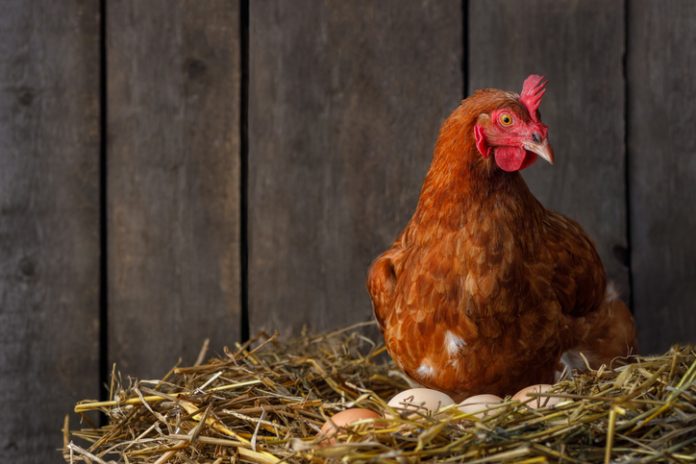Lab-grown, cultivated, or cell-cultured meat is cleared for sale by the U.S. Department of Agriculture.
Companies like Upside Foods and Good Meat can grow cell-based proteins—chicken, beef, and seafood—in a lab for restaurants and supermarkets.
But suppliers will have to overcome three hurdles facing the new products: high costs, scalability, and overcoming consumers’ “ick” reaction.
Worse for Environment
A recent study from the University of California, Davis (UCD) suggests lab-grown meat cultured from animal cells is likely to have an environmental impact “orders of magnitude” worse than beef produced through traditional cattle ranching.
“Because of the purification needed to produce meat in the lab and receive certification for sale, the UCD scientists found that the carbon dioxide equivalent emitted for each kilogram of lab-grown meat is four to 25 times greater than the average for retail beef,” said H. Sterling Burnett, Ph.D., director of the Arthur B. Robinson Center on Climate and Environmental Policy at The Heartland Institute, which publishes Health Care News.
“I see no reason for believing that what is true for lab-grown beef wouldn’t also be true for lab-grown chicken,” said Burnett. “The level of purification needed is the same. As a result, lab-grown chicken produces no net carbon dioxide reduction.”
‘Consumers Should Decide’
A lot is at stake for cell-based proteins, says Jeff Stier, a senior fellow at the Consumer Choice Center.
“I’m a big fan of private sector innovation, but the key is, it has to be truly private sector,” said Stier. “Regulators need to regulate with a light touch to get the potential real (or even imagined) benefits.”
Stier says in the case of Impossible Foods, which advocated for sin taxes on traditional meat, the innovative company revealed a lack of confidence in consumer demand for their product by rent-seeking—trying to get a market advantage through taxing their competitor.
Similarly, so-called green energy is great—until the government interferes in the market with subsidies, sin taxes, and other sorts of central planning, says Stier.
“Will cell-based proteins have advantages? Only consumers should decide,” said Stier. “And the innovators should be confident to compete on an even playing field. Otherwise, I’m afraid they’re just, sort of… chicken.”
Where’s the Beef?
Assuming the problem of scalability can be solved, is there really a market for lab-grown meat, asks Devon Herrick, a health care economist, and policy advisor to The Heartland Institute.
“I don’t really see laboratory-grown chicken becoming anything more than a novelty in the near future,” said Herrick. “Plant-based meat sales are declining. I don’t see lab-grown meats being any different. Production methods for chicken are well established and prices lower compared to lab-grown products.”
Consumers looking for food alternatives might not want animal protein, says Herrick.
“Something else that remains to be seen is whether vegetarians and those who abstain from meat for ethical reasons will embrace lab-grown meat,” said Herrick. “It almost seems like firms pursuing lab-grown products are up against a limited market.”
Nature v. ‘Nurture’
Consumers are right to be skeptical of lab-grown meat, says Teresa Mull, an assistant editor at The Spectator World and author of Woke-Proof Your Life.
“Not only is the idea of ‘cultivating’ meat in steel tanks creepy and untenable financially, it’s also unnatural and carries with it a host of risks that don’t exist when meat is raised in a responsible way,” said Mull.
Pushing cultivated animal protein on people will give the state more power, says Mull.
“The so-called ‘fears’ being mongered to force lab-grown meat to the market—that the traditional way of raising animals for food leads to pollution and climate change—is just another smokescreen to convince the public to fall for a foolish scheme that results in more government control of the population,” said Mull. “If government were to eliminate agricultural regulation, farmers and ranchers would be free to innovate and refine their craft to everyone’s benefit—no labs required.”
‘Eco-posturing Techies’
Only environmentalists could propose such an anti-natural project as lab-created fake foods, says John Dale Dunn, M.D., J.D., a physician, attorney, and policy advisor to The Heartland Institute.
“Don’t fool with Mother Nature,” said Dunn. “Eco-posturing techies are just trying to substitute lab products produced by genetic engineering (sci-fi horrors) for natural food, with all the uncertainties and potential risks of lab products, genetic/cancer risks, and for what, futuristic nonsense that substitutes a chemical factory for farming.”
Farmers are the nature lovers—they grow crops and animals for food—it’s proven safe and healthy,” said Dunn. “It is stupid posturing and pretense to propose that lab-produced cell lines somehow are the food of the future—pinheads are always trying to push crazy. As Orwell said so well, ‘There are some ideas so absurd that only an intellectual will believe them.’”
Kenneth Artz (KApublishing@gmx.com) writes from Tyler, Texas.
Internet info:
Derrick Risner, et al., “Environmental impacts of cultured meat: A cradle-to-gate life cycle assessment,” bioRxiv, April 21, 2023: https://www.biorxiv.org/content/10.1101/2023.04.21.537778v1.full
Amy Quinton, “Lab-Grown Meat’s Carbon Footprint Potentially Worse Than Retail Beef: Study Finds Scaling Up Production Using Existing Processes Highly Energy-Intensive,” University of California, Davis, May 22, 2023: https://www.ucdavis.edu/food/news/lab-grown-meat-carbon-footprint-worse-beef




















